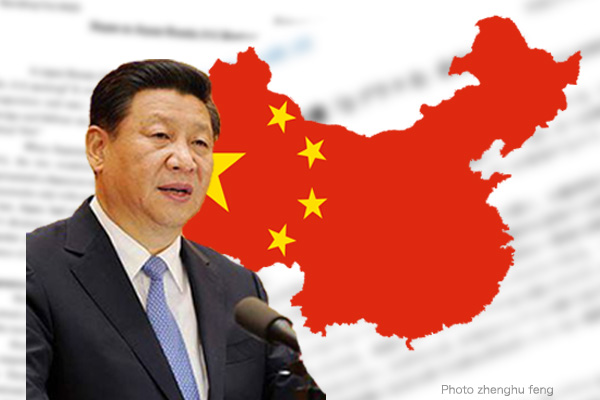For stories on Chinese President Xi Jinping’s speech to a ceremony to mark the 100th anniversary of the Chinese Communist Party on July 1, Japanese media adopted a passage on Taiwan for headlines. I have no intention to nitpick over this point but would like to note that Xi touched on Taiwan only briefly in his address lasted for a little more than an hour. In the only strong expression in the brief passage, the Chinese leader said, “We must take resolute action to utterly defeat any attempt toward ‘Taiwan independence,’ and work together to create a bright future for national rejuvenation.”
Whether to interpret this as a routine reiteration or a big news may depend on reporters’ news sense. I felt nothing new in this expression. Xi went on to say, “No one should underestimate the resolve, the will, and the ability of the Chinese people to defend their national sovereignty and territorial integrity.” This is a well-worn cliché with which I got bored.
“Great wall of steel” remark came as no surprise
In a harsh message taken up by some Japanese newspapers, Xi said, “We will never allow any foreign force to bully, oppress or subjugate us. Anyone who would attempt to do so will find themselves on a collision course with a great wall of steel forged by over 1.4 billion Chinese people.” This represents a natural way of thinking. Abnormal may be Japanese who underwent atomic bombing attacks but wrote “we will not repeat the same mistake” on the cenotaph for the atomic bomb victims.
Xi emphasized that China rallied revolutionary forces of failed revolutions such as the Taiping Heavenly Kingdom Movement, the Reform Movement of 1898, the Yihetuan Movement (Boxer Rebellion) and the Revolution of 1911 and combined them with Marxism-Leninism into “socialism with Chinese characteristics.” It is legitimate for Chinese to build the “great wall of steel” to counter foreign powers that invaded their territories.
As China conducted a nuclear test in August 1995, or 26 years ago, then Japanese Vice Foreign Minister Sadayuki Hayashi conveyed Japan’s protest against the nuclear test to then Chinese Ambassador to Japan Xu Dunxin. The envoy told Hayashi: “China underwent invasions by foreign powers including Japan that inflicted the greatest damage on China. From the painful history, Chinese people have learned that they would be bullied if their country is weak.” This remark might have been echoed in the core of the Xi speech.
China attempting to change its image?
Former U.S. President Donald Trump adopted a China policy differing from that of his predecessor Barack Obama, confronting with China in all fields from military, politics, economy and technology to religions and ethnic minorities. Current U.S. President Joe Biden has taken over Trump’s China policy so far. Furthermore, anti-China criticism has spread to the Group of Seven industrial democracies and the North Atlantic Treaty Organization. China has been isolated from industrial democracies, though with developing countries set aside.
According to a Xinhua report on June 5, Xi told a meeting of the Communist Party in May that the party must not only display self-confidence but work to create an image of China as a country that is "humble, trustworthy, loved and respected,” calling for enhancing external communications. This might have been reflected in the latest relatively moderate speech. Given that China excels in strategies and tactics, the seemingly moderate speech may not necessarily mean that Beijing would soften foreign policy. But the tone of the Xi address was not overbearing.
Tadae Takubo is Vice President, Japan Institute for National Fundamentals and a professor emeritus at Kyorin University.


